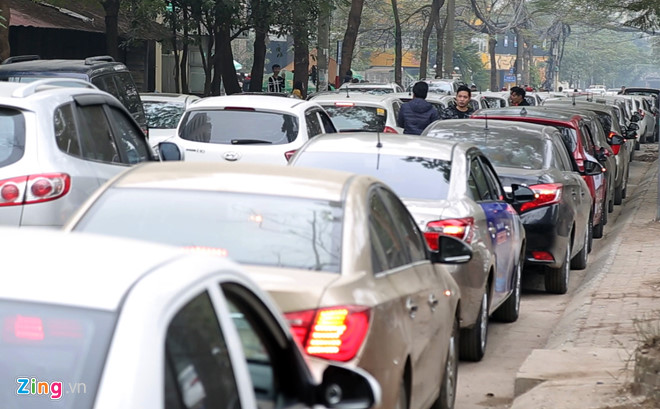Uber and Grab subject to tax in Hanoi
 |
| Hanoi is trying to even the field between Uber and Grab and traditional taxi firms |
This was one of the contents of the document that the Hanoi People’s Committee submitted to the Government Office on the management of Uber and Grab under the pilot programme called "Application of information technology in supporting the management and connection of commercial passenger transportation by contract," according to newswire Zing.
According to the document, this proposal is to ensure transparency and equality in tax obligations among passenger transport services providers.
Besides, Hanoi proposed the Ministry of Transport (MoT) to add a legal framework and improve authorities’ management capacity over electronic transactions and electronic trading in order to control the operations of transport units under this pilot programme.
Hanoi also proposed the government to build regulations to identify ride-hailing application providers as transport firms and impose similar management measures as for traditional taxi firms. Accordingly, Uber and Grab will have to have a transport trading licence for automobiles, register their fleet as well as declare fares as traditional taxi firms.
Furthermore, Hanoi also asked ride-hailing application providers to register their e-commerce platform licence.
In addition, ride-hailing application providers will have to publicise the number of vehicles in their fleets, the routes, the working hours of drivers, as well as the operation areas so that the authorities can control and introduce traffic management methods to avoid traffic jams in the inner city.
Finally, MoT and the Hanoi People’s Committee will have to reach a comprise on the development plan for ride-hailing application providers in order not to upset the city’s traffic planning as well as the passenger transport service system in the city.
Previously, Hanoi put up traffic signs banning transportation cars of less than nine seats and using technology applications to provide services to customers from roads that are off-limits to traditional taxis. The ban is piloted on 13 streets in the capital on January 11- February 11.
The purpose of the above decision is to create a fair playground for both ride-hailing application providers and traditional taxis. The ban will be effective for one month after which the transport department will survey residents. If the majority of the residents agree with the pilot programme, the department will extend the ban.
What the stars mean:
★ Poor ★ ★ Promising ★★★ Good ★★★★ Very good ★★★★★ Exceptional
Themes: Ride-hailing services
Latest News
More News
- State corporations poised to drive 2026 growth (February 03, 2026 | 13:58)
- Why high-tech talent will define Vietnam’s growth (February 02, 2026 | 10:47)
- FMCG resilience amid varying storms (February 02, 2026 | 10:00)
- Customs reforms strengthen business confidence, support trade growth (February 01, 2026 | 08:20)
- Vietnam and US to launch sixth trade negotiation round (January 30, 2026 | 15:19)
- Digital publishing emerges as key growth driver in Vietnam (January 30, 2026 | 10:59)
- EVN signs key contract for Tri An hydropower expansion (January 30, 2026 | 10:57)
- Vietnam to lead trade growth in ASEAN (January 29, 2026 | 15:08)
- Carlsberg Vietnam delivers Lunar New Year support in central region (January 28, 2026 | 17:19)
- TikTok penalised $35,000 in Vietnam for consumer protection violations (January 28, 2026 | 17:15)
















 Mobile Version
Mobile Version